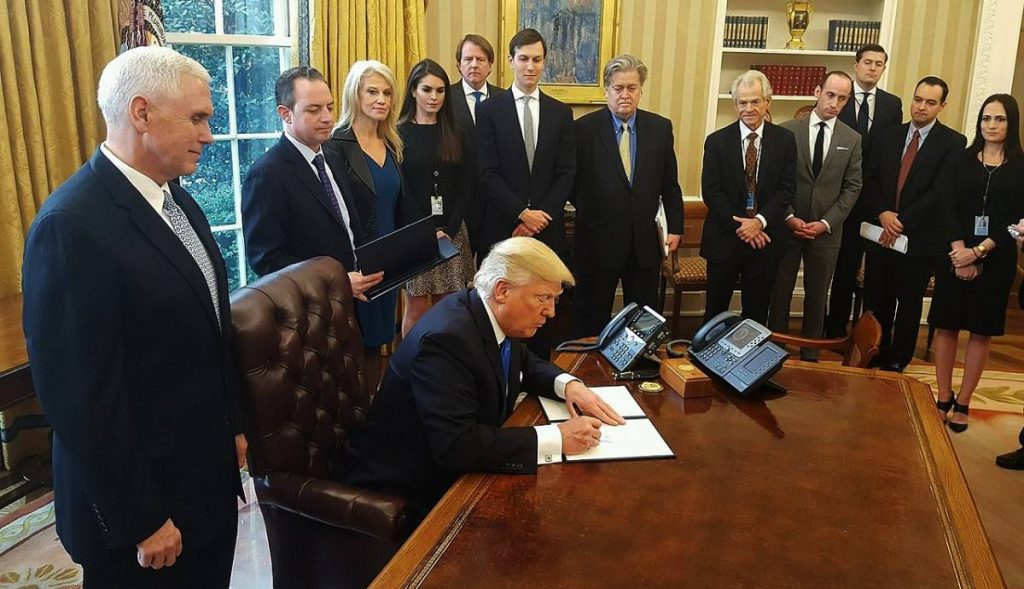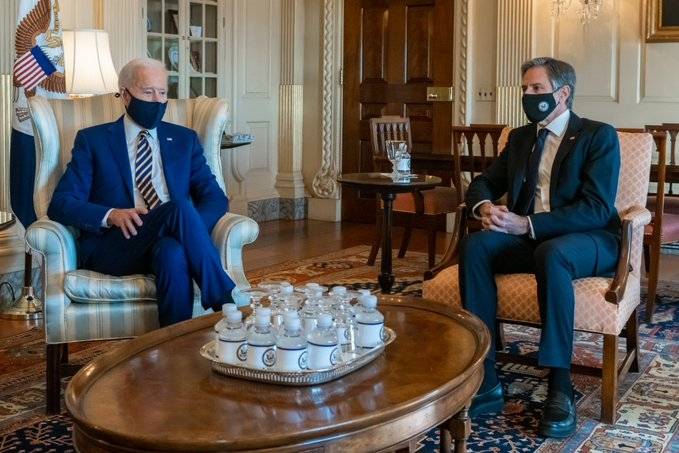Advantage to Dali Lama and his followers in Tibet and across the world. The new US legislation Tibetan Policy and Support Act will empower the US Government to impose sanctions on the Chinese Government officials, who might try to interfere in the process of selecting the next incarnation of the Dalai Lama … A special report by Vijay Kranti
Tibetan Policy and Support Act was introduced to the Congress by the Chairman of the Congressional China Commission and Tom Lantos Human Rights Commission, Jim McGovern , and Senator Marco Rubio. The Tibetan Policy and Support Act makes US policy to oppose attempts by Beijing to install its own Dalai Lama “in a manner inconsistent with Tibetan Buddhism in which the succession or identification of Tibetan Buddhist lamas, including the Dalai Lama, should occur without interference…”
On January 28, 2020, the TPSA bill passed by the US House of Representatives by a vote of 392–22. On May 14, 2020, the United States Senate Committee on Foreign Relations was to discuss the bill. On December 21, 2020, the bill was approved by the U.S. Congress as an amendment to the Consolidated Appropriations Act, 2021. And finally on December 27, 2020, the bill was signed by then President Donald Trump.

The legislation makes reference to the Chinese government’s ‘Measures on the Management of the Reincarnation of Living Buddhas’ in 2007, and a March 2019 statement by the Chinese Foreign Ministry spokesperson that the “reincarnation of living Buddhas including the Dalai Lama must comply with Chinese laws and regulations and follow religious rituals and historical conventions”.
It also refers to China’s installation of a 6-year-old boy in 1995 as the 11th Panchen Lama, and statements by the present Dalai Lama explaining the traditions to be followed in the selection of a Dalai Lama, and that the authority to recognise the reincarnation of a Dalai Lama lies with him and his officials. The US law also proposes dialogue between the Chinese government and the Dalai Lama.
Also Read – Hightime to Heed Tibetan Woes
The law also makes it US policy to hold senior Chinese officials “responsible for, complicit in, or have directly or indirectly engaged in the identification or installation of a candidate chosen by China as the future 15th Dalai Lama of Tibetan Buddhism” to have committed “a gross violation of internationally recognized human rights”, attracting sanctions under the Global Magnitsky Human Rights Accountability Act. The new legislation will empower the US Government to impose sanctions on the Chinese Government officials, who might try to interfere in the process of selecting the next incarnation of the Dalai Lama.The legislation has been hailed by the Tibetans, who were concerned over the possibility of the Chinese Government making an attempt to install someone loyal to it as the 15th Dalai Lama and use him as a puppet to fizzle out the global campaign against its occupation of Tibet.

The new legislation also calls for the creation of a new US consulate in Lhasa, the capital of the Tibet Autonomous Region. The TPSA has also introduced provisions aimed at protecting the environment of the Tibetan plateau, calling for greater international cooperation and greater involvement by Tibetans, alleging that China is diverting water resources from Tibet. It also calls for “a regional framework on water security, or use existing frameworks to facilitate cooperative agreements among all riparian nations that would promote arrangements on impounding and diversion of waters that originate on the Tibetan Plateau”. Because the People’s Republic of China has already completed water transfer programmes diverting billions of cubic metres of water yearly and has plans to divert more waters from the Tibetan plateau in China.
The TPSA also authorises a number of appropriations for Tibet and Tibetan related issues, including (not less than) $8 million for Tibetan communities in the Tibet Autonomous Region and in other Tibetan communities in China; $6 million for Tibetan communities in India and Nepal; $3 million to strengthen the capacity of Tibetan institutions and governance in exile; over $3.4 million and $4 million respectively for Voice of America’s and Radio Free Asia’s reporting on Tibet and Tibetans; $1 million for Office of the United States Special Coordinator for Tibetan Issues, among others.

The TSPA is an amended version of the Tibet Policy Act of 2002, which came into existence during the 43rd President of United States of America, George Walker Bush. By considering the relations with China important, President George Walker Bush distanced himself from this Congressional action, and wrote strong words against it in his signing statement, in which asserted the administration’s right not to implement parts of the act. He wrote: “Regrettably, the Act contains a number of provisions that impermissibly interfere with the constitutional functions of the presidency in foreign affairs, including provisions that purport to establish foreign policy that are of significant concern.” He also said his approval to the Act did not constitute his adoption of the various statements of policy in the Act as US foreign policy, and said these would be taken as “advisory” statements only, “giving them the due weight that comity between the legislative and executive branches should require, to the extent consistent with US foreign policy”.

US-China relations have become much more difficult over the last two decades, particularly worsening in the Trump Administration. And more so in 2020 over matters ranging from the pandemic to trade tariffs, and its cross-world coalition-building against Chinese superpower ambitions. President Trump and Biden is not expected to take a Bush-like view on the TSPA.
Lobsang Sangay, president of the Central Tibetan Administration have described the legislation as a victory for the Tibetan freedom struggle and said,”We have been pushing for this for the last two years,” He said the move by the US Congress was a tribute to the great legacy of His Holiness the Dalai Lama and to the solidarity of six million Tibetans inside Tibet.
“By passing the TPSA, Congress has sent its message loud and clear that Tibet remains a priority for the United States and that it will continue its steadfast support for His Holiness the Dalai Lama and the CTA,” he added.
Sangay expressed his gratitude to the key sponsors, co-sponsors and everyone who supported the bill, particularly Senators Marco Rubio and Ben Cardin; and Congressmen Jim McGovern and Chris Smith for their “extraordinary leadership” in introducing the bill in the House and Senate. He said, “I would like to especially thank House Speaker Nancy Pelosi and Senate Majority Leader Mitch McConnell for their steadfast support in making this historic bill come true. I also thank Senators James E. Risch and Robert Menendez, the Chair and Ranking Member of the Senate Foreign Relations Committee; and Representatives Eliot L. Engel and Michael McCaul, the Chair and Co-Chair of the House Foreign Affairs Committee, respectively.”

As was expected, reacting to the passage of TPSA Chinese Authorities said that, “the TPSA severely breached international law and basic norms governing international relations, interfered in China’s internal affairs, and sent a wrong message to ‘Tibet independence’ forces”.
It added that China “resolutely opposes” the “adoption of Bills containing such ill contents on China. Issues related to Tibet, Taiwan and Hong Kong are China’s internal affairs that allow no foreign interference”.
Chinese Foreign Ministry spokesman urged the US “to stop meddling in their domestic affairs under those pretexts, refrain from signing the bills or implementing the negative contents and items in them that target China and undercut China’s interests”.
The success of the TPSA is due in part to Tibetan Americans and other Tibet supporters, who sent more than 26,000 petitions to members of Congress through the International Campaign for Tibet.

The signing of Tibetan policy and Support Act by US President is a sign of freedom for Tibetans from the tyranny of Chinese Communist Party. This act of the US is appreciative as it has been mainly undertaken to preserve the Human Rights in Tibet and also to preserve the unique cultural and religious traditions of Tibet. And it is also important example of the help done by a powerful country to a small country. Entire world should support US in future so that more legislation similar to TPSA will be passed. The world should support US so that US can take stringent actions on China in support of Tibetan people as they are being severely harassed. Especially, India should take out legislation similar to TPSA, as it is preferable for India to shares border with Tibet instead of China. It would also be a positive for India if the next (15th) Dalai Lama is identified from India. Dalai Lama himself has said several times that he is son of India and can take rebirth in India.
(Author is a senior journalist and a keen watcher of Tibet-China scene for nearly five decades. He is Chairman, Centre for Himalayan Asia Studies and Engagement, New Delhi)

Leave a Reply